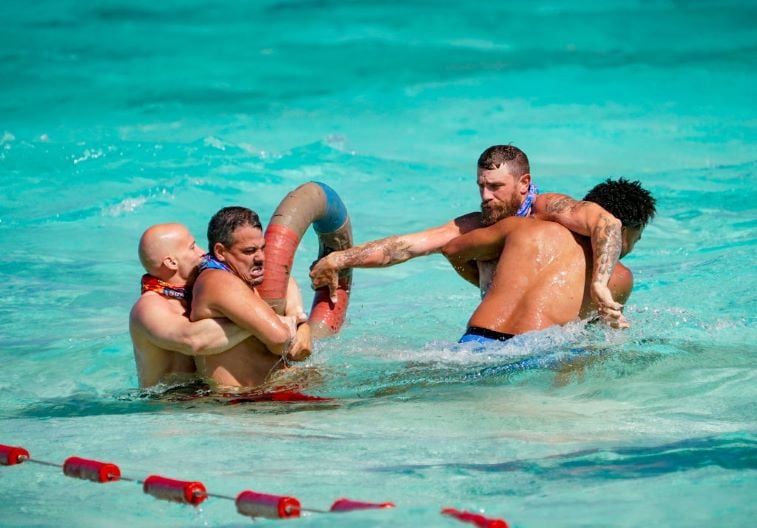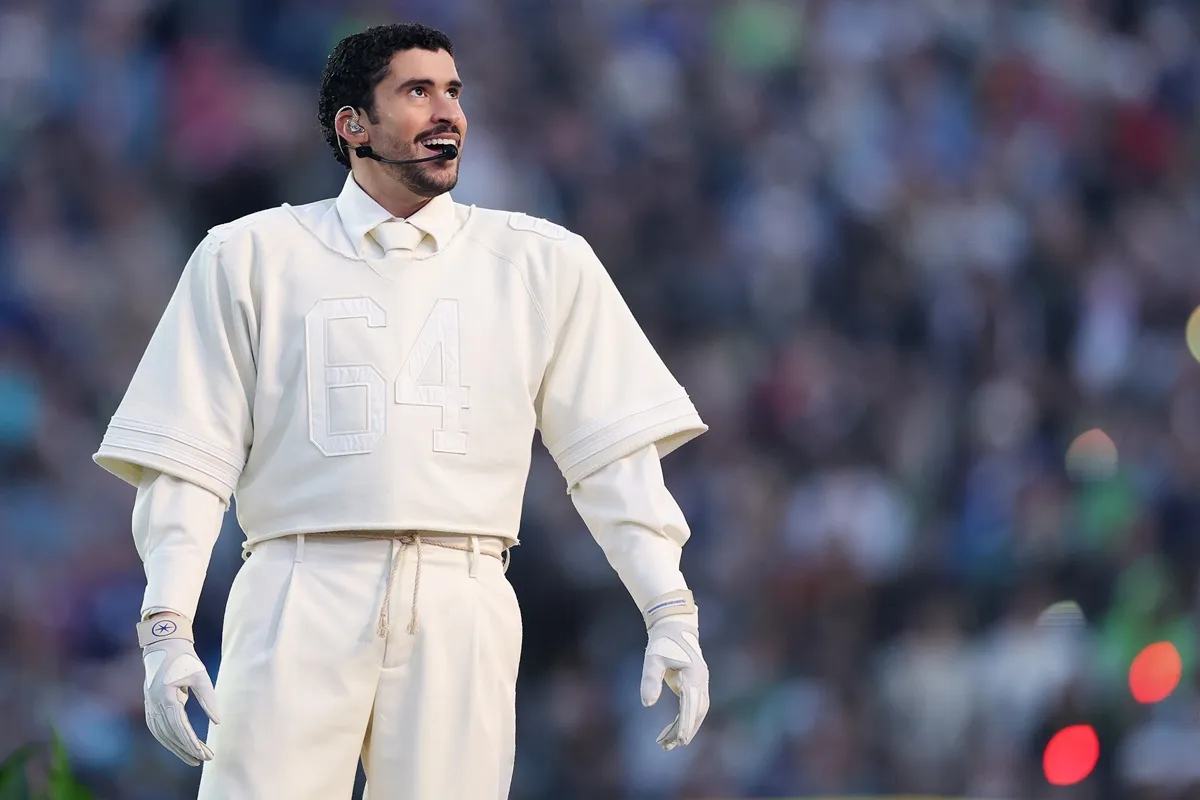‘Survivor 40: Winners at War’: Dakal Had An Unfair Advantage in the First Immunity Challenge, and the Producers Knew It
The season premiere of Survivor 40: Winners at War was epic. If fans didn’t know already that it was going to be a great season, Jeff Probst popping a bottle of bubbly in the first few minutes solidified it.
With 20 returning winners going head to head for $2 million, it seems odd that the producers would let one team have an unfair advantage. Take a look at what happened and why the Sele players did not complain about Dakal’s good fortune.
[Warning: Survivor Season 40 spoilers ahead]

Here’s how the Sele Tribe never had a chance in the first immunity challenge on ‘Survivor 40’
After the champagne, Probst got right down to business with the 20 contestants. They were split into two tribes — Dakal and Sele — and then immediately faced off in the first immunity challenge. It was a classic where two players from each team run into the water, grab a ring and attempt to be the first to get it back to their pole.
However, the wind and the swells were so severe that day that the Sele tribe was at a significant disadvantage. It took an enormous number of crew members to even get the flags into the water because of the weather conditions.
Probst did note during the competition that a swell brought one pair over to the Dakal side. However, what he did not say was — that’s precisely what happened every time. The current was moving in the direction of the Dakal side.
The teams faced off five times, not just three, as viewers watched on the episode. Dakal won four out of five times because of the wind and the swells, according to Entertainment Weekly’s Dalton Ross, who was on location during the challenge.
Why didn’t the Sele tribe complain about the unfair advantage?
Ross continued to say that it was evident to everyone playing that Dakal had the wind and swells on their side. However, not one person from the Sele tribe complained.
“I’m sure the Sele players noticed this in the course of the competition, and I did not see one single player complain,” Ross explained. “It’s Survivor. Just like a tribe swap — some factors may favor you. Others may not. Deal with it.”
Because this is a season of winners — many who have played the game multiple times — it’s evident that they know this kind of thing happens a lot. There’s nothing anyone could do about it, so they continued to play.
Do teams or players get weather advantages often?
The location where a challenge is held is chosen based on the neutrality of it. So, the crew scopes out various spots where they might hold the competition, and they decide for the good of both tribes.
The weather, wind, and currents are unpredictable and can change at any time. Advantages or disadvantages happen all the time. For instance, when players line up to test their balance and endurance, one spot might be windier or buggier than another.
The wind could have changed in favor of the Sele tribe at any point during this competition. Unfortunately for them, it never did. Survivor airs Wednesday nights at 8 pm ET on CBS.
Read more: ‘Survivor’: Will Boston Rob and Amber’s Kids Ever Compete on Survivor?


